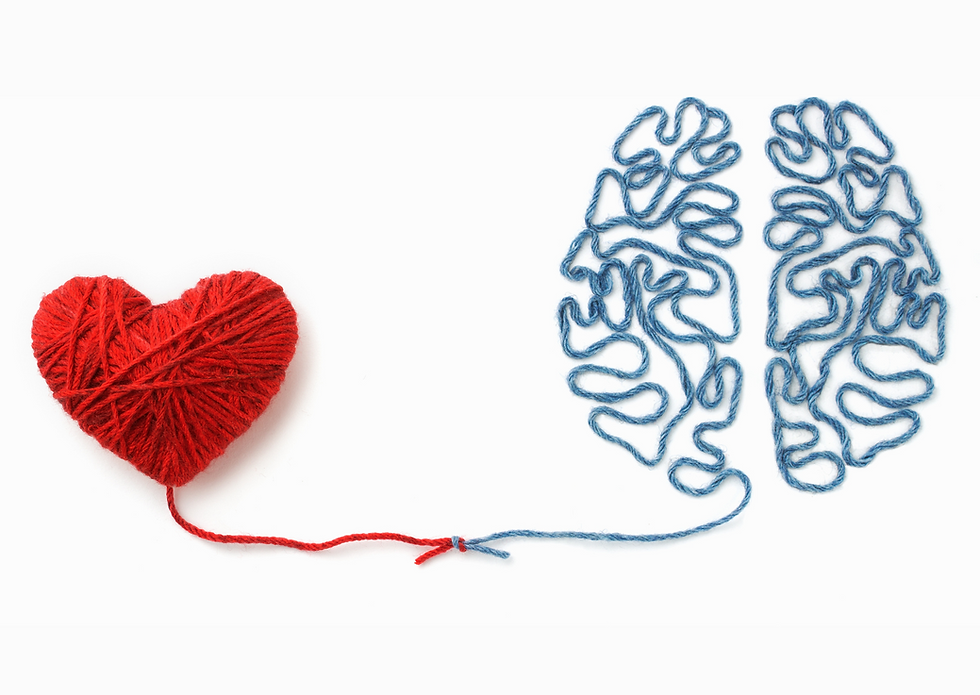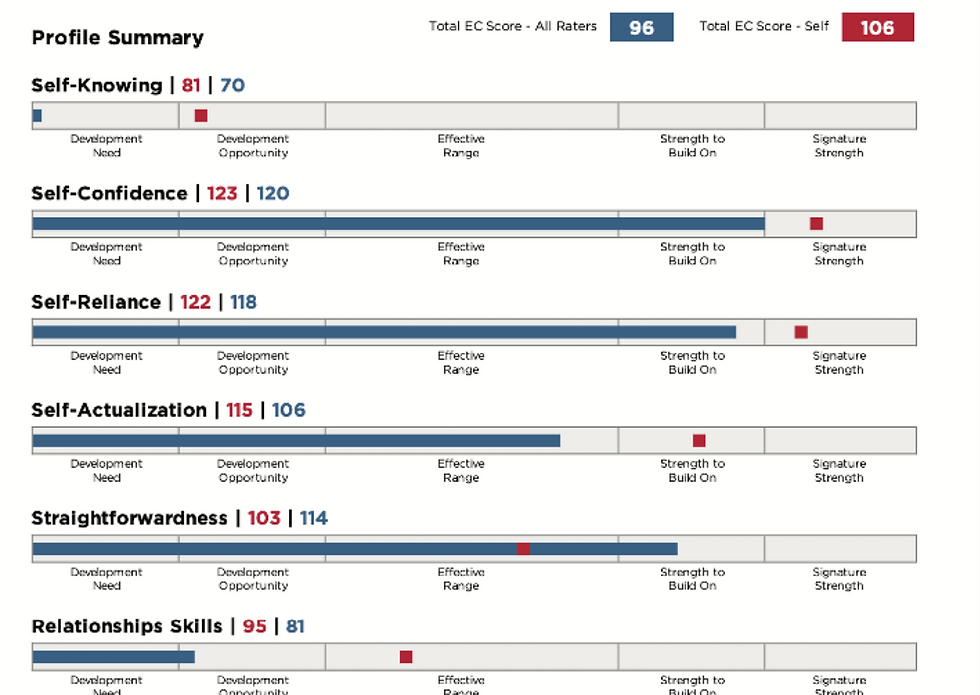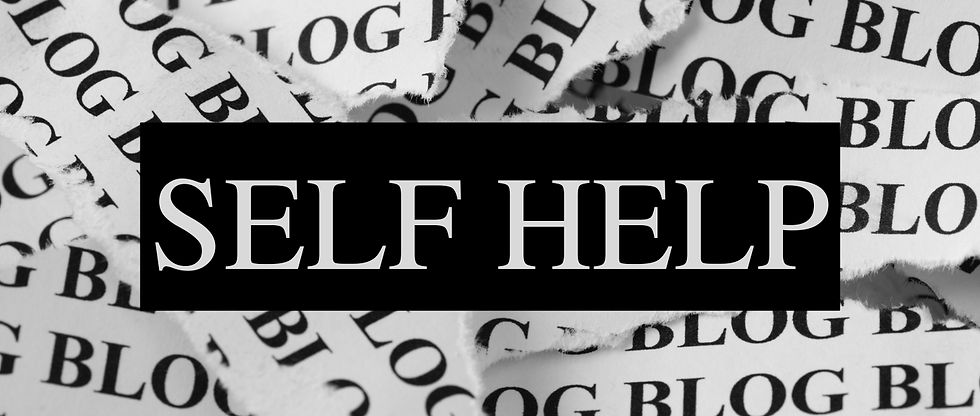Emotional Intelligence - handy for just about everything!
- Mary Ely
- Oct 20, 2022
- 4 min read
Updated: Apr 18, 2024

Emotional Intelligence is a mix of competencies, which are widely recognised as being essential for leadership excellence and professional success generally...and they're pretty handy for our personal lives as well!
Why is it important to develop your Emotional Intelligence? What is it exactly? How do you know if you have it? How do you develop it?
That's what this blog is about.
Why is it important to develop your Emotional Intelligence?
Research shows that - 90% of the world's top executives have high Emotional Intelligence
Studies have shown that Emotional Intelligence is responsible for up to 63% of a company’s overall performance.
According to the World Economic Forum’s Future Jobs report 2020 - Emotional Intelligence is one of the most important skills any employee can have.
AND based on my experience of over 25 years supporting individuals, teams and businesses through individual change and business change and technology projects, Emotional Intelligence is the key to being able to effectively deal with, implement and lead through change!
...but what do you think?
As you read through the rest of the blog, think about what difference it would make to the various areas of your life if
You had ALL of these qualities (you'll have some already) and
The people around you did too.
What is Emotional Intelligence exactly?
Think of emotional intelligence as an aid for life in general!

And keeping that theme going for a moment, the 10 competencies also split quite handily into three 'SOS' categories:
Self Others Situation
Self - what you bring to any situation
Others - how you approach, react to and interact with other people
Situation - how you approach and react to situations
Self - what you bring

Self-Confidence
The ability to stay relaxed and take action without fear, knowing that you'll be OK
Self-Knowing
Understanding how you think and how that impacts your experience of life and your impact on the people and things around you.Self-Confidence
The ability to stay relaxed and take action without fear, knowing that you'll be OK.
Self-Reliance
Having the power to develop ideas, choose between options and make decisions without needing others.
Self-Control
Being able to regulate your emotional response to events, so you can stay focused, think logically and move forward in an organised way.
Others - your interpersonal skills

Relationship Skills
Developing the attitudes you need that result in collaborative partnerships that focus on empowerment and win-win outcomes.
Empathy
Understanding and demonstrating awareness of another person's experience. Building the emotional connection that creates rapport and trust between people.
Straightforwardness
Acknowledging that others may think differently from you and being able to calmly and clearly explain your perspective.
Situation - how you deal with and approach events

Adaptability
Being willing and able to take on new ideas and change how you think, feel and behave.
Optimism
Seeing the positive and finding opportunity in every experience. Being able to deal with and bounce back from any setbacks or disappointments.
Self-Actualisation
Being clear on your goals and being able to generate the ongoing energy, motivation and commitment to do what it takes to get them
How much easier would your life be if you and the people around you had a good balance of all of those qualities? How much easier would it be to get the results you're looking for?
And having a balance is important.
Being Emotionally Intelligent means developing all of the competencies
Together they create a really positive impact on how we approach and react to every scenario and the results we get.
Having too much of one or a few competencies and not enough of others means that the impact of each falls short and can explain the problems that people have in their relationships and roles.
How do you know if you have it?
..and how do you know if anything you're doing to develop it is making a difference to your level of Emotional Intelligence?

Well, that's where some coaching and the RocheMartin Emotional Capital Assessments come in...and particularly the 360 degree assessment, when it comes to how your Emotional Intelligence shows up at work.
The 360 version of the assessment gathers feedback from people you nominate - your manager, peers, direct reports and other stakeholders. So you can see how your view of your competencies compares to what others see.
As the assessments provide a measure of Emotional Intelligence, re-taking them over time will highlight the results of any development activity.
How do you develop Emotional Intelligence?
Coaching

Coaching is by far the most efficient, effective, engaging, empowering and enjoyable way to build any of the Emotional Intelligence competencies.
Helping you to develop, refine and embed your own personalised strategies for each competency.
If you’d like to explore coaching with me then click on this link to book a free 45 minute call.
Learn about how people work

Emotional Intelligence is about people.
Understanding how they think, feel, behave, act and react and the impact of that.
So if you learn how people work, the Emotional Intelligence competencies become easier to understand and develop.
Neuro Linguistic Programming (NLP), draws together learning from psychology and neuroscience and puts it into a very understandable and useable form so it's great for easily learning about people. These blogs cover the basics
Check out my other Emotional Intelligence blogs

You'll find two blogs for each of the ten competencies in the Emotional Intelligence section of my blog that cover:
Why the competency is important
What it is exactly
Some ideas on how to develop it
So why not consider investing in yourself, as
Whatever investment you make in developing your Emotional Intelligence will be well worth it!
If you'd like to explore coaching with me or discuss anything in this blog, just click on this link to book a free 45 minute call.
And if you'd like to try out my monthly emails that provide a roundup of my blogs as well as other insights, you can sign up here.
コメント